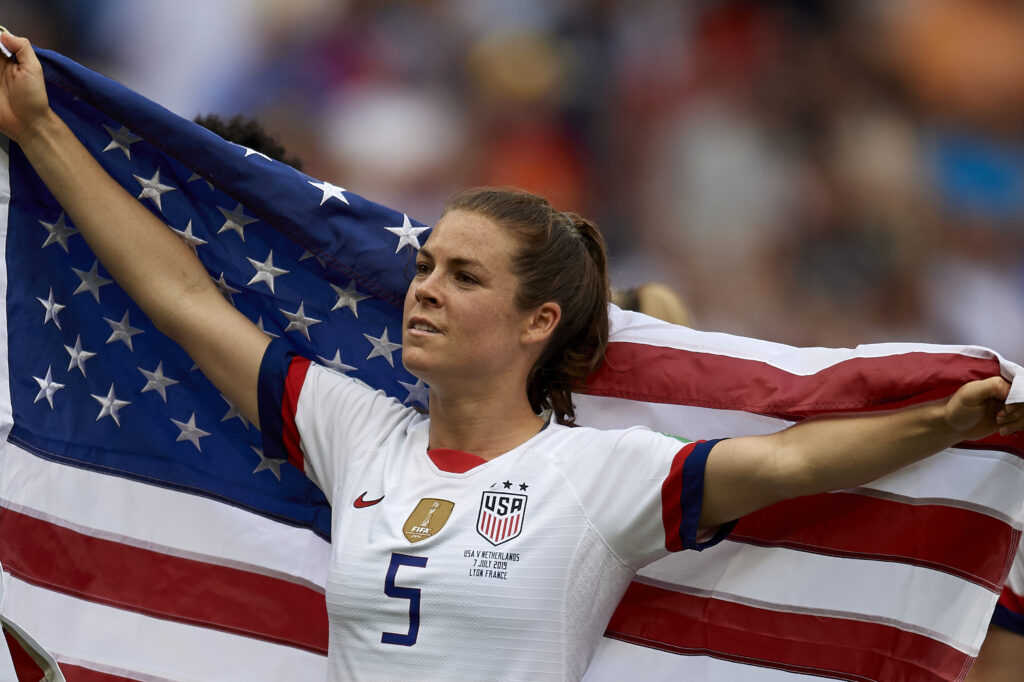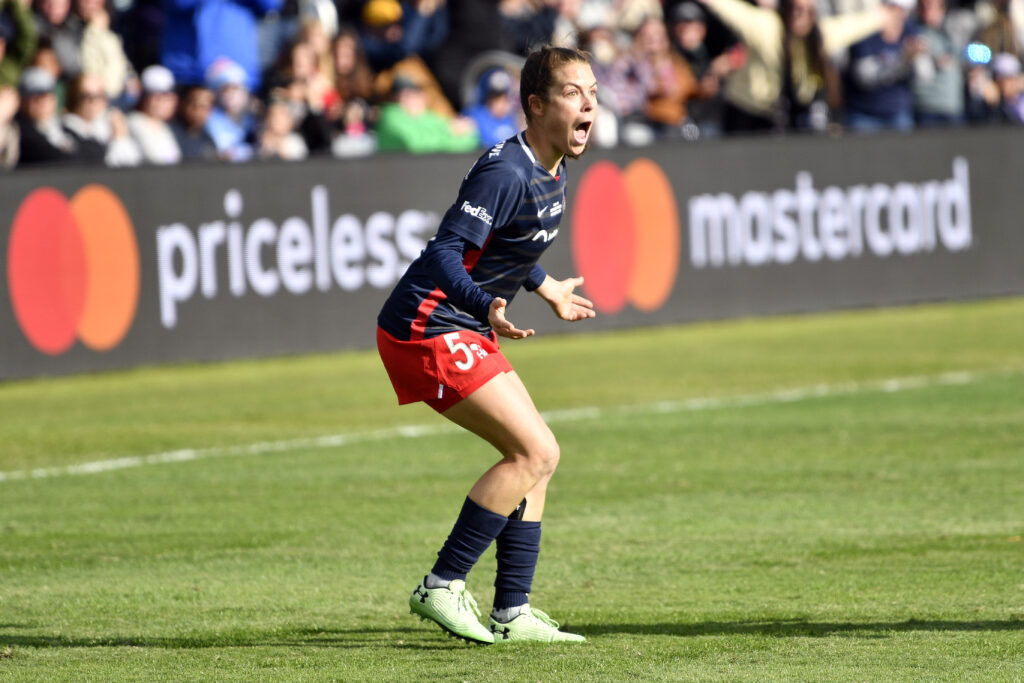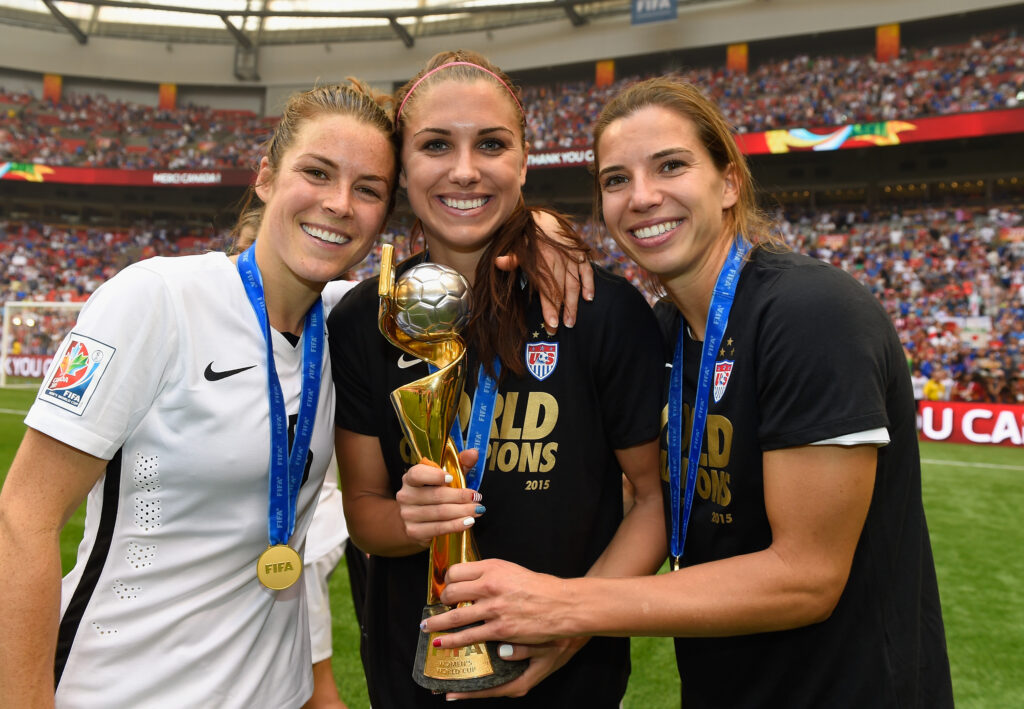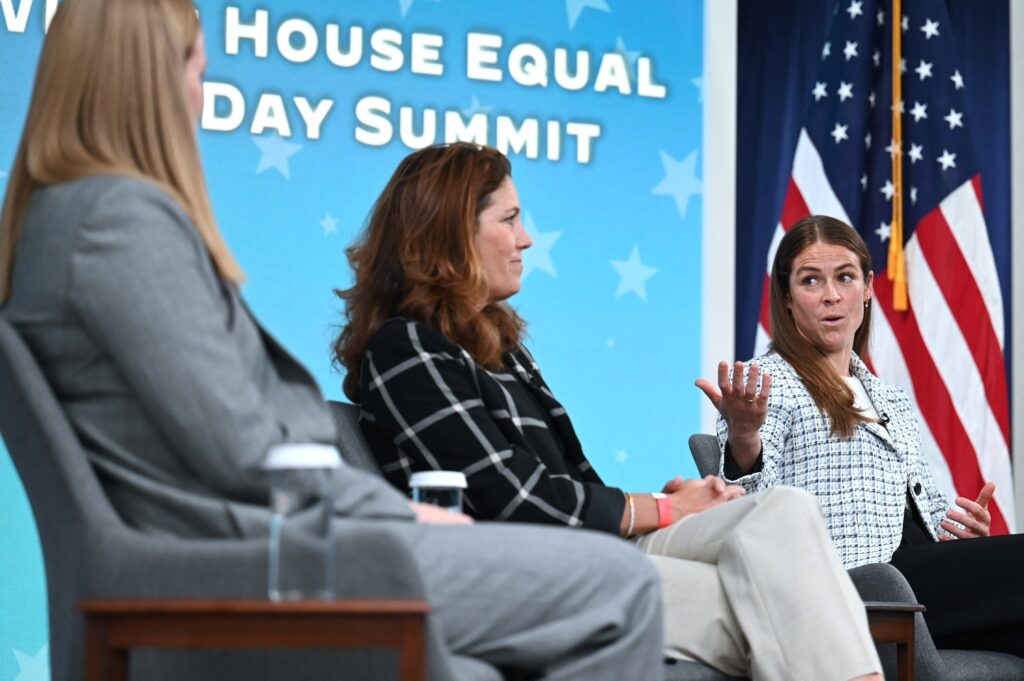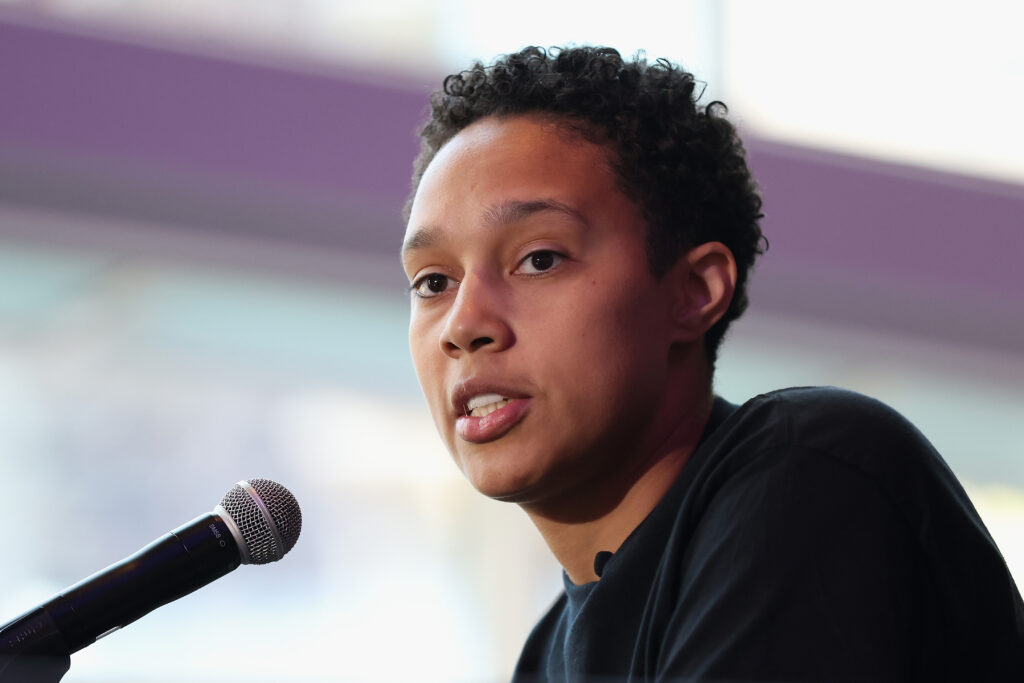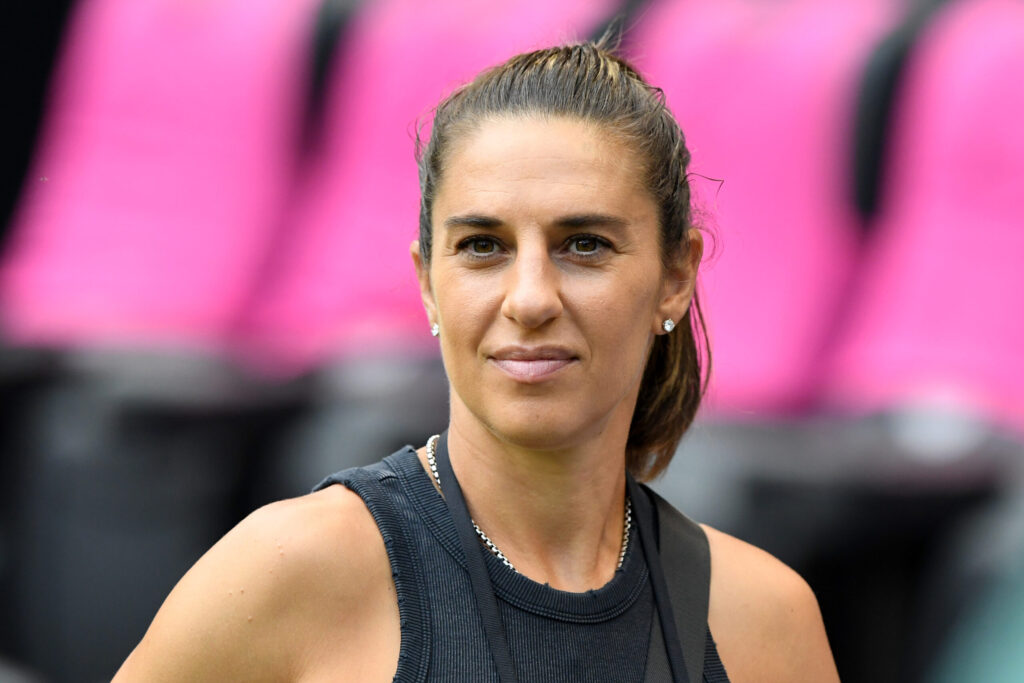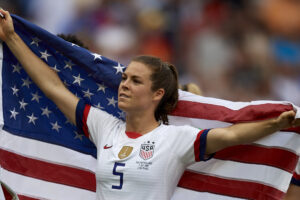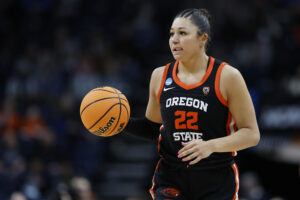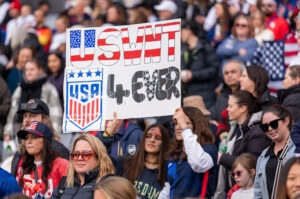Sarah Gorden is a defender for the Chicago Red Stars of the NWSL. She spoke with Just Women’s Sports about the ongoing protests and what needs to change.
What has your reaction been to all of the events of the last few weeks?
That’s a full question. It goes without saying that initially the reaction was just sadness and fear, fear for family, friends. And then now with the protests, it’s overwhelming… It’s hard for people to have these conversations, it’s really difficult, but it’s necessary. Being mixed, being light skinned, I don’t necessarily go through the same things that darker skinned people go through, but this is my son’s future, this is everything. So this week has just been depressing, and exhausting. How long has this been going on? When will things change? A little bit of hope comes from how many people have reached out, friends, teammates, family, saying ‘I’m here, how are you? How is it going?’ And it feels good to see so many white people at protests and all that stuff. So there is hope, but then there’s fear, and it’s scary.
Why do you think that it’s so important to speak out?
For me, it’s so important to speak out because I have a black son, I have a black boyfriend. These are people I know and love, and it’s in my blood, too. And enough is enough. I can’t stand it anymore, and a lot of people can’t. Before, I’ve been timid about speaking about my experience just because I’m light skinned, I’m mixed. I grew up around white people, I don’t have the same experience. And in the past, I think I’ve tiptoed around the conversation with my white friends because I wanted to make them comfortable. But it’s absolutely not okay anymore. I want this world to change. I want my son to grow up in a world where he’s not eight-years-old being profiled by the police.
Why do you think it’s important that athletes in particular be vocal about this issue?
I think it’s important because so many people look up to you as an athlete. That makes our voices important, because when we speak out on these things, we’re educating a lot of people. As a mixed woman with a black son, it’s important for me to speak out because when other people see that they learn, they find ways to help, they see ways in which we’ve all failed as a society — ways in which we all could do better. People need to see that we, as athletes, believe in this movement. It’s been great to see a lot of my white teammates speak up, and say these things, and get uncomfortable. That’s exactly what we need.
Looking specifically at the soccer community, what do you think needs to change? How do we improve?
The first thing we can do is break stereotypes of black soccer players. I’m so sick of hearing the same things said about every black girl, that, oh, she’s so fast, she’s so strong, she’s so aggressive, she’s so athletic. We are so much more than that. But it feels like, as a black girl, you have to work twice as hard to be called a ‘technical’ player. It’s going to be difficult to change this, because a lot of it is unconscious. But starting to break those stereotypes is the first thing. And then the second is bridging the gap between the black community and soccer. We need to bring the sport to the community, and have black players training younger girls, showing them there’s a way for them to do this. I think giving those opportunities to black girls is going to be huge.
I called the owner of our club and talked to him about this earlier. We’re in the soccer world, we’re a soccer club, so how can we change things here? If we all focus on changing our own area, the world will start to change.
Is there anything else you’d like to add?
I know a lot of people feel guilty, a lot of white people feel guilt. I feel that same guilt because I know that because I’m lighter skinned I have privilege, too. But it’s just so important to, even with that guilty feeling or whatever you’re feeling, to continue to speak, and to continue to act, because that’s how we’re going to change things. And just because you feel guilty or uncomfortable isn’t an excuse to be quiet anymore.

